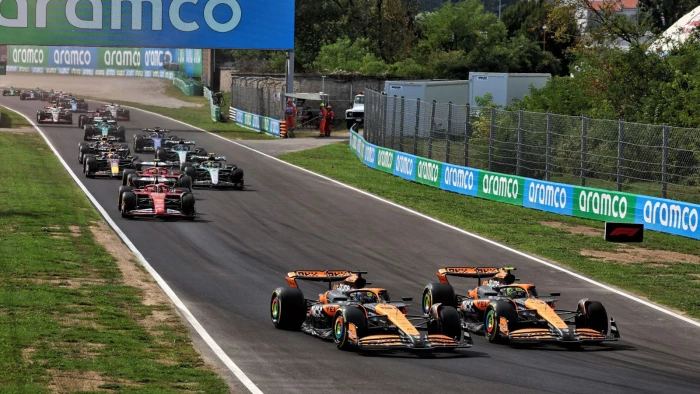Andretti's Formula 1 bid rejection sparks US DOJ investigation
mario-andretti-former-f1-world-champion16
Liberty Media, the American corporation that owns Formula 1, has found itself in hot water as it faces an antitrust investigation by the United States Department of Justice (DOJ).
The investigation was launched following Liberty Media's decision to reject Andretti Global's bid to join the Formula 1 grid as the 11th team, raising questions about the fairness of the process.
The DOJ's probe came on the heels of growing political pressure from US Congress members, who had voiced concerns about the handling of Andretti's application.
Back in May, racing legend Mario Andretti, along with US Representatives John James and Victoria Spartz, made a public appeal on the steps of the Capitol, denouncing what they saw as an unjust denial of the Andretti bid. Their vocal advocacy added fuel to the fire, prompting federal authorities to step in.
Liberty Media responded to the investigation with a pledge of full cooperation. Greg Maffei, the president and CEO of Liberty Media, addressed the situation publicly, stating, "There is a DOJ investigation, and we intend to fully cooperate with that investigation, including any related requests for information."
Maffei also expressed confidence in the legality of their decision, adding, "We believe, our determination, F1's determination, was in compliance with all applicable U.S. antitrust laws, and we've detailed the rationale for the decision, vis-a-vis Andretti, in prior statements."
The controversy began when Andretti Global, spearheaded by Michael Andretti, submitted its bid to enter Formula 1. The Federation Internationale de l'Automobile (FIA), the sport's governing body, initially gave the green light in October of the previous year.
The FIA's approval was based on sporting and technical evaluations conducted through an Expressions of Interest process, suggesting that Andretti met the necessary requirements on those fronts.
However, the final decision rested with Formula 1, which then had to scrutinize Andretti's financial capability and overall legitimacy.
Following a rigorous four-month review, Formula 1 delivered a blow to Andretti's ambitions, announcing in January that the bid did not meet its stringent financial criteria. The rejection left Michael Andretti "devastated," but undeterred. He continued to build his team, which now boasts over 200 employees, determined to find a way into the sport.
The involvement of U.S. lawmakers has now thrust the matter into the legal arena, with the DOJ examining whether Liberty Media's decision violated antitrust regulations.
Despite the controversy, Maffei has reiterated that Formula 1 remains open to expanding the grid under the right conditions. "We are certainly not against the idea that any expansion is wrong," Maffei stated. "There is a methodology for expansion that requires approval of the FIA and F1, and both groups have to find the criteria met.
"We are certainly open to new entrants making applications and potentially being approved if those requirements are met."
As the current Formula 1 season enjoys its summer break, set to resume with the Dutch Grand Prix on August 25, the sport has found itself embroiled in legal and political drama. The outcome of the DOJ investigation could have significant implications for the future of the sport and the potential inclusion of new teams on the grid.

